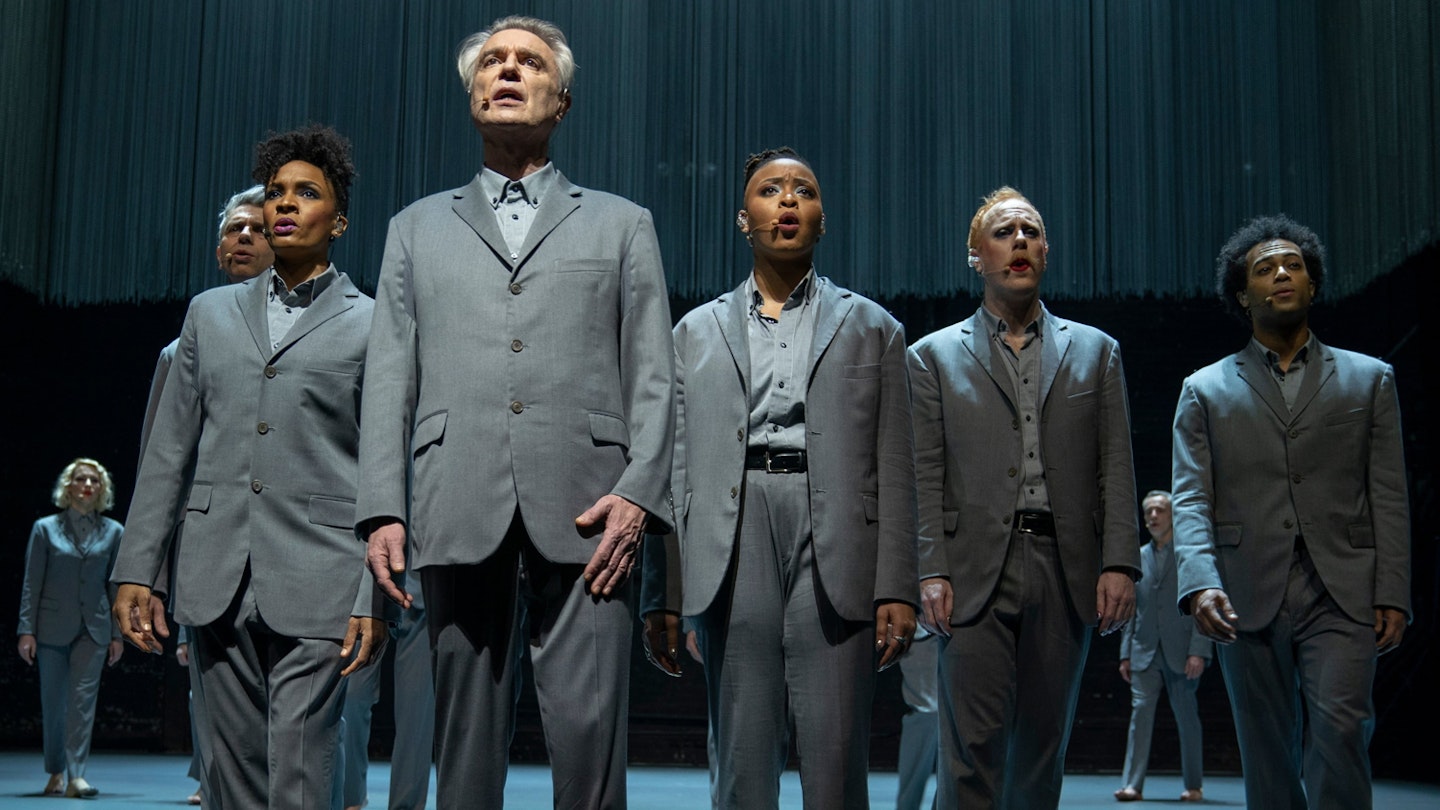If you ever wanted to walk around in the brain of the tireless polymath and comfortably odd performer David Byrne, you would do well to watch American Utopia.
Byrne has previously brought his powerful tenor and angular frame to the screen in Jonathan Demme’s 1984 concert movie Stop Making Sense. Directed by Spike Lee, whose fiction work often contains a sublime marriage of image and music, American Utopia carries that same fiercely kinetic and ebullient energy (there’s even a lamp cameo), but gone are the spaghetti arms and gargantuan suit, replaced with an openly personal and political positioning of Byrne’s music.

The composition is modest yet muscular; Byrne’s besuited ensemble are harnessed to wireless instruments, which allows them to move playfully across the stage. “What if we could eliminate everything from the stage, except the stuff that we care about?” speculates the vocalist before notioning to himself and the audience. This genius untethering is orchestrated by Annie-B Parson, whose cheerful choreography toggles from song to song: masculine stances during ‘Lazy’, goofy manoeuvres for ‘Toe Jam’ and wonky, off-axis spinning for ‘Once In A Lifetime’.
The stripped-down set is equally devoured by Lee, who demolishes the audience divide and sends his 11 camera operators to catch Byrne’s bare feet, his unblinking face, or an aerial shot of the group marching in cross formation. He also keeps audience shots to a minimum, allowing the performance to transcend the physical parameters of New York’s Hudson Theatre.
Byrne channels a message of such disarming humility and faith that to walk away from this film unchanged is impossible.
Lee’s direction fluidly draws Byrne’s show into a new dimension, but is also heavily felt in the film’s most galvanising moments. For the show’s penultimate number — a cover of Janelle Monáe’s ‘Hell You Talmbout’ — Lee cuts to a series of standalone shots that profile the song’s listed victims of police brutality, aligning himself with Byrne as a stalwart activist.
Byrne — ceremonious with his muted silver suit and shock of white hair — bookends his songs with a blend of self-deprecating bons mots, anecdotes and ideas for a better future. He describes ‘Hell You Talmbout’ as a protest song, but also a call for change, “not just in this imperfect world, but in myself. I need to change.” As a seasoned musician and frontman, Byrne is attuned to his platform and knows how to use its every square foot. He’s friendly and familiar while jumping from Talking Heads landmarks to his more cerebral solo work, and submerges eagerly into the raucous, propulsive rhythm of his band.
Yet with American Utopia, Byrne wants to go further — he’s on a mission to connect with and comfort the people who have taken the time to watch him, while holding the world and himself to account. Throughout, he channels a message of such disarming humility and faith that to walk away from this film unchanged is impossible. That it bears giddily rousing performances of some of the most revered pop songs of all time is a secondary delight.
